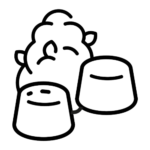What Is THCA Flower: Differences from THC
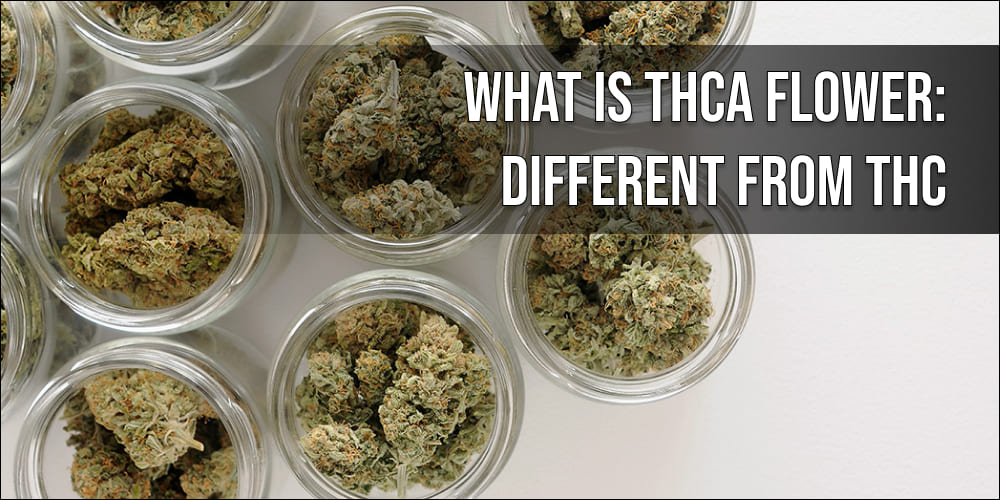
Every year, cannabis attracts more attention, and its world becomes increasingly multifaceted. Recently, terms like THCA flower have gained popularity, which can confuse even experienced consumers. Why? Because many of us are used to the well-known psychoactive component of cannabis — THC, which is the main culprit behind the “high” effect. But this raises the question: what exactly is THCA, and how does it differ from THC?
In this article, we’ll break down what THCA flower is, how it differs from THC flowers, its medical benefits, and ways to use it. We will cover all aspects of this topic so you can understand what this substance is and how it affects your body.
- The Sweet Symphony of Gelato Strain: A Flavorful Cannabis Experience
- Gorilla Glue Strain: Legend That Packs a Powerful Punch
- Exploring Gushers Strain: A Fusion of Taste and Effects
What is THCA?
THCA (tetrahydrocannabinolic acid) is the non-psychoactive form of the cannabinoid that ultimately converts into THC — the very cannabinoid that causes the “high” and other psychoactive effects in consumers. However, in its raw form, THCA does not have these properties. Why is this? It’s all about its chemical structure.
- THCA is an acid. It has an additional carboxyl group (-COOH) in its molecule, which makes it inactive.
- THC, on the other hand, is the decarboxylated form of THCA. This happens when THCA is exposed to heat, such as during smoking, baking, or vaping. The process, where the carboxyl group (COOH) breaks off and is released as carbon dioxide (CO2), is called decarboxylation.
Thus, THCA does not cause a psychoactive effect unless it undergoes heat processing.
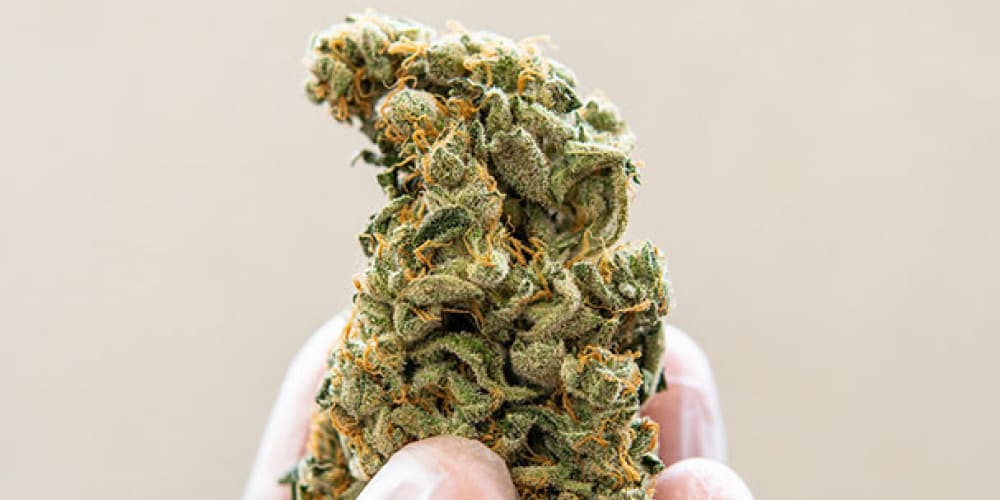
Difference Between THCA and THC
Now that we understand what THCA is, let’s break down how it differs from THC. Here are the main points:
- Psychoactive Effects:
- THC is a psychoactive substance that causes changes in perception, euphoria, increased appetite, and often affects short-term memory.
- THCA, on the other hand, does not cause these effects. It does not influence perception or create a “high” unless it undergoes the decarboxylation process.
- Medical Benefits:
- THC is used effectively for conditions like chronic pain, insomnia, anxiety, depression, and also stimulates appetite. It can also cause side effects such as paranoia or anxiety in some users.
- THCA, despite not having psychoactive effects, also possesses a range of medical properties. It is anti-inflammatory, may be useful for conditions like arthritis, Parkinson’s disease, and other neurological disorders. THCA may also have antioxidant and gentle anti-nausea properties.
- Potential in Medicine:
- THC is used in medicine to treat pain, insomnia, and to stimulate appetite in chemotherapy patients, among other uses.
- THCA is of interest to scientists as a potential anti-inflammatory agent and neuroprotector, with research ongoing in this area.
- Legality:
- In regions where cannabis with THC content is illegal, THCA may be legal because it does not produce psychoactive effects. For example, THCA flowers can fall under the category of “legal cannabis products” as long as their THC content does not exceed the legal threshold. It’s important to note that products like THCA extracts or THCA products may still be banned depending on local laws.
Elevate your relaxation with Alien OG (Indica) — 1g APE Disposable Vape. Known for its earthy pine and lemon zest aroma, this high-quality vape delivers a smooth, potent experience for ultimate unwinding.
What Are THCA Flowers and How Do They Look?
THCA flowers are essentially regular cannabis flowers but with a notable characteristic — they contain THCA, not active THC. Visually, these flowers look identical to regular cannabis flowers that you might find in a store if you live in a region where cannabis is legal.
Origin: Cannabis flowers naturally contain THCA in high amounts. In their raw form, these plants are exposed to heat to activate THC. However, if they are not subjected to decarboxylation, they remain THCA flowers, without active THC.
Appearance: THCA flowers typically have the same characteristics as regular cannabis flowers: dense, resinous, often covered in trichomes (crystalline hairs that secrete cannabinoids and terpenes). These flowers may be various shades of green, often with purple and orange highlights depending on the strain.
Flavor and Aroma: Since THCA flowers have not undergone the decarboxylation process, their flavor and aroma will also differ from regular THC flowers. In their raw form, they may have more subtle smells that become more pronounced only after heat is applied.
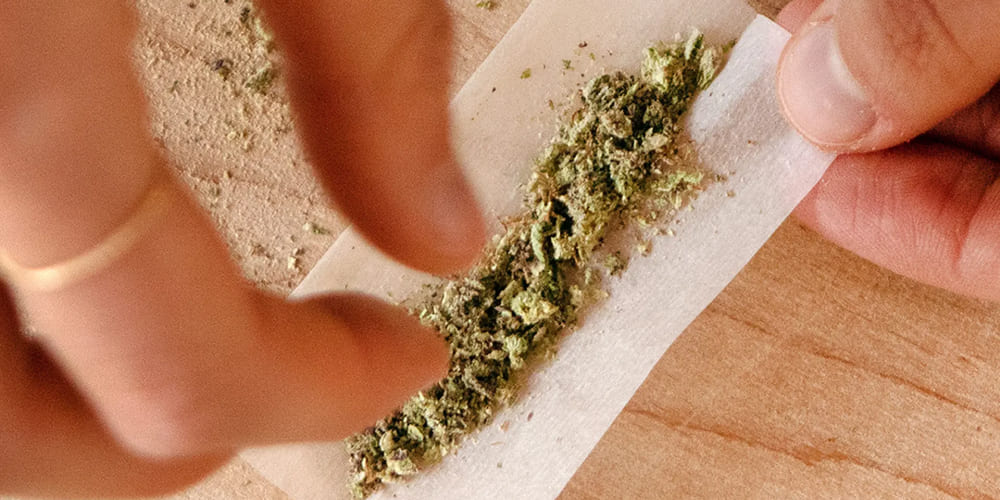
Medical Properties of THCA
Despite the fact that THCA doesn’t cause psychoactive effects, its medical benefits are gaining attention not only from cannabis users but also from researchers. Let’s take a closer look at how THCA can be beneficial.
Anti-inflammatory Properties: One of the most well-known and frequently cited benefits of THCA is its ability to reduce inflammation. This property makes THCA effective for treating a variety of inflammatory conditions like arthritis, joint diseases, and chronic inflammation. Some studies have shown that THCA may block the action of certain enzymes that cause inflammation in the body.
Neuroprotective Action: THCA has the potential to protect nerve cells from damage and degeneration. Research has shown that THCA may slow the progression of diseases like Parkinson’s disease, Alzheimer’s disease, and multiple sclerosis, thanks to its neuroprotective properties.
Antioxidant Properties: Like other cannabinoids, THCA has antioxidant properties. This means it helps neutralize free radicals, which can damage cells and accelerate the aging process. This makes THCA useful not only for treating diseases but also for preventing aging and maintaining overall health.
Anti-nausea Action: THCA may be helpful for those suffering from nausea and vomiting, such as chemotherapy patients. This property makes THCA promising as an adjunct to treat side effects of medical treatments.
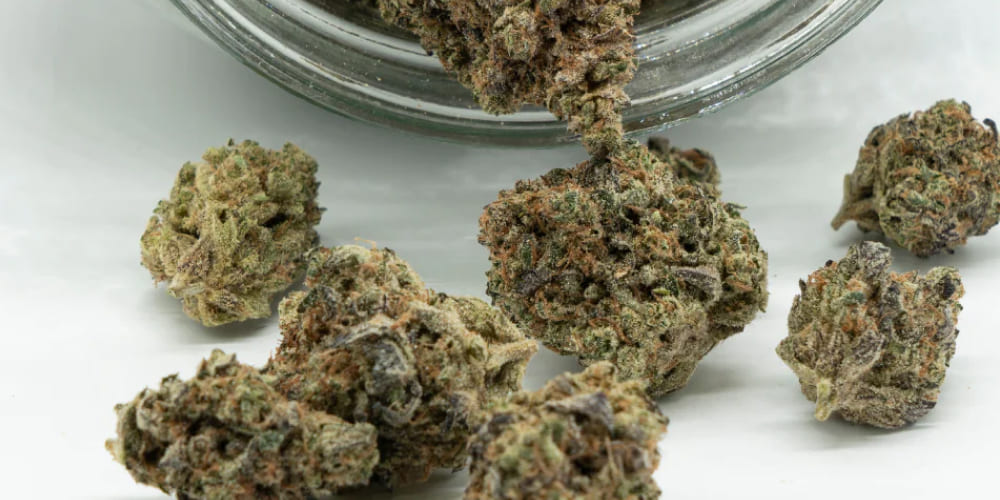
How to Use THCA Flowers?
There are several ways to consume THCA flowers, depending on personal preferences. Here are some popular methods.
Raw Flowers: The simplest way to use THCA is by consuming raw THCA flowers. These flowers can be added to smoothies, juices, or even used to make teas. In this case, THCA remains inactive, and you get all its benefits without psychoactive effects.
Topical Products: If you need localized treatment, you can use creams or ointments made with THCA. These are excellent for treating joint pain, inflammation, and other skin conditions.
Capsules and Extracts: For more precise dosing, many producers offer capsules with THCA or extracts that can be added to food or taken on their own. This is a convenient way to get all the benefits of THCA in a tasteless form.
Cooking: You can also use THCA flowers in cooking. For example, adding them to salads, sauces, or even soups. It’s important to remember that THCA will remain inactive unless exposed to heat, so it is best to use raw THCA if you are looking for its non-psychoactive benefits.
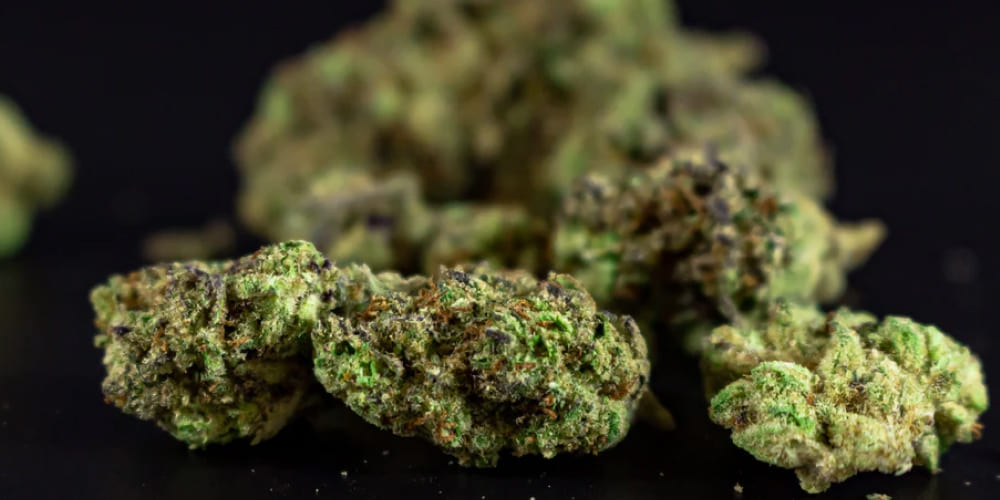
THCA flowers are truly a unique product in the cannabis industry. Although THCA does not cause psychoactive effects, its medical and therapeutic benefits make it valuable for those seeking an alternative form of treatment without the need for a “high.” If you are looking for milder, more natural methods of therapy or simply want to gain all the benefits of cannabis without the heady effects, THCA flowers are an excellent choice for you.
Understanding the differences between THCA and THC helps you navigate the world of cannabis and make more informed decisions about choosing the right product for your needs and goals.












